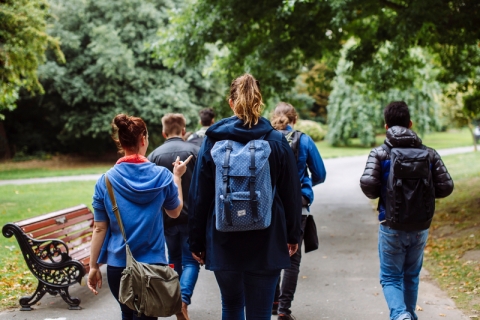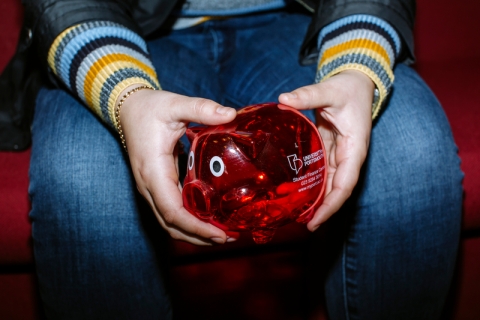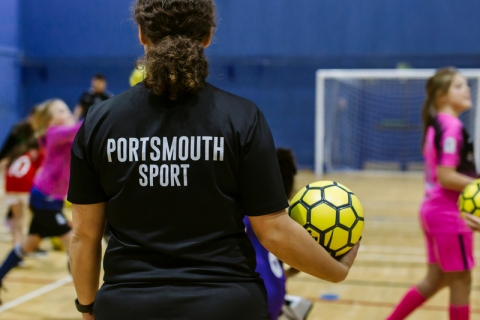
Sidebar navigation

How to arrive ready to start uni
Follow our guide to starting university at arrive at uni ready for what comes next
You've been accepted to uni and all you need to do now is get ready to start. So what comes next?
You can do a few things in the months leading up to your arrival to prepare for university, including figuring out what to bring from home, learning to cook for yourself and sorting out your finances. Use our guide to starting university and feel at home before you move in.

Decide what to pack
Start thinking early about what to pack for your new student room. Resist the temptation to bring everything you own. You won't have loads of space in your university accommodation, especially if you're sharing a kitchen and bathroom. Use our packing checklists to make sure you have everything to you need.
Get posters for your walls
If you're moving into uni halls, you'll want your room to feel cosy and customised to your tastes. Get a few prints and posters for your wall. Print off photos of friends and family and make them into a collage in case you miss them.
Protect your possessions
When living away from home, especially in shared accommodation, you should reduce risks to your possessions. Get contents insurance when you start uni to protect your possessions from theft, fire or accidents.

Prepare to cook for yourself
You'll need to know how to cook when you arrive at uni. Cooking your own food will save you money and keep you healthier than buying ready-made meals or fast food. Bring your favourite cookbook or follow some good student cooking blogs or YouTube channels for meal ideas on a budget.
Practice recipes
Ask your mum, dad or guardian to teach you how to cook your favourite dish. Or learn your favourite recipes with friends. Practising recipes when preparing for uni will make it easier to get into the habit of cooking. Being able to cook your favourite recipe will also give you a taste of home when you're away.
Order a food delivery
Plan your first food shop just before you get to uni. Ask your parents or guardian if they'll show you how to order your groceries online. Order a food shop to arrive on your first weekend. You won't have to worry about finding the closest shops while moving in, and you'll get supplies delivered straight to your door.

Sort out your finances
If you can, save up some money before you arrive at uni. Plan your spending wisely and take advantage of the many student discounts on offer to save while you study.
Make a budget
It's a good idea to make a budget when preparing for university. You should have an idea of how much money you'll have in the bank each month, depending on loans and savings you accumulate before uni.
Add up your monthly essential expenses and take this away from the total money you expect to have each month. Essentials will include your rent, bills, transport costs and food. Plan your extra spending such as clothes and nights out using the money left over.
Apply for a student bank account
You can have a regular bank account as a student, but a student bank account has extra benefits. The benefits are different depending on the bank you choose. They could include an interest-free overdraft, a free railcard or free cash.
Get your student discount card
Totum is a discount card and app exclusively for students. It's approved by the National Union of Students (NUS) and gets you money off clothes, shoes, electronic devices, entertainment and restaurants.
Apply for a railcard
You should consider getting a young person's railcard if you travel by train regularly. The railcard costs £30 a year (or £70 for 3 years) and gets you up to 1/3 off rail fares across England, Scotland and Wales.
You'll save a lot of money if you're planning to visit friends and family by train. You can also use the railcard to get savings on experiences and days out.

Explore societies and sports clubs
Prepare for university and for making new friends by joining a student-led group. The Students' Union will have a list of societies and sports clubs on their website. Look over the list before you arrive at uni to know what societies and sports clubs to visit during Fresher's Week.
Our Students' Union has over 140 societies and sports clubs, and you can find out more about staying active in the city at our Sport in Portsmouth page.

Find your way around campus and the city
If possible, take a trip to your new uni campus and get an idea of where the main buildings are – including the Students' Union. You'll feel more comfortable arriving for your induction if you've already walked around campus.
Find out how to get from your accommodation to the main lecture theatres and the library. You could also download Google maps of the city or campus to your phone so you're prepared when you arrive.
Look out for important services when you're getting to know the campus, such as IT, student finance, careers, wellbeing, and the Students' Union.
You can download a map of our campus and find out where our main buildings are located. You can also do a self-guided campus tour.
To find out more about where to go for great food, culture, music, shopping and green spaces in Portsmouth, visit our Life outside Study pages.
Register with a GP
To make sure you can get medical treatment if you need it, you should register with a GP as soon as you get to university.
As a new student, you'll need to provide proof of your new address and fill out a medical questionnaire.
Think about transport
Consider if you need a bus pass or a bike, or a parking permit if you're bringing a car.
At Portsmouth, you can use your student ID to get the University bus for free. The bus route passes our main University buildings and the most popular student residential areas.
We have over 1,500 cycle hoops and bike racks across campus, including secure 4 cycle cages that require a student or staff ID to enter. Our guide to staying safe on campus gives more advice on protecting your bike.
